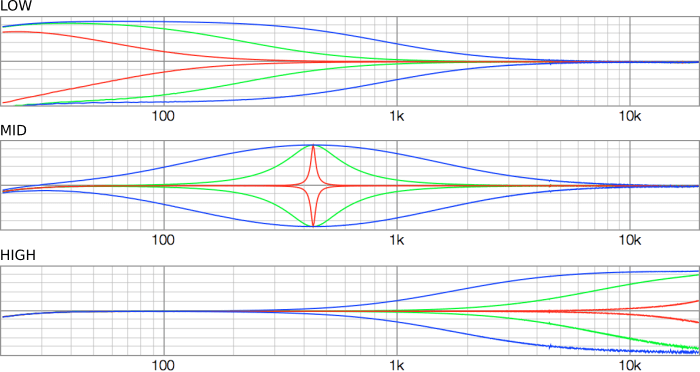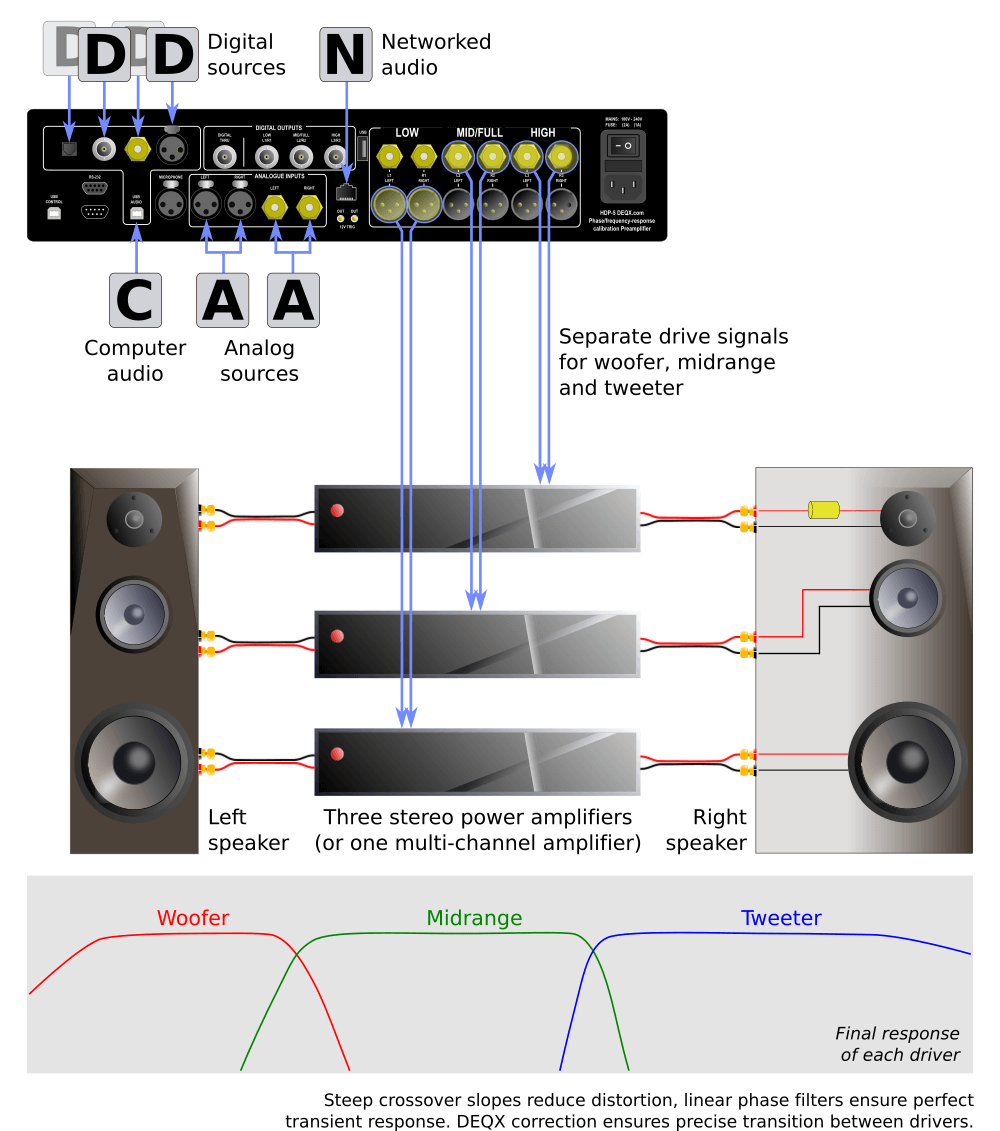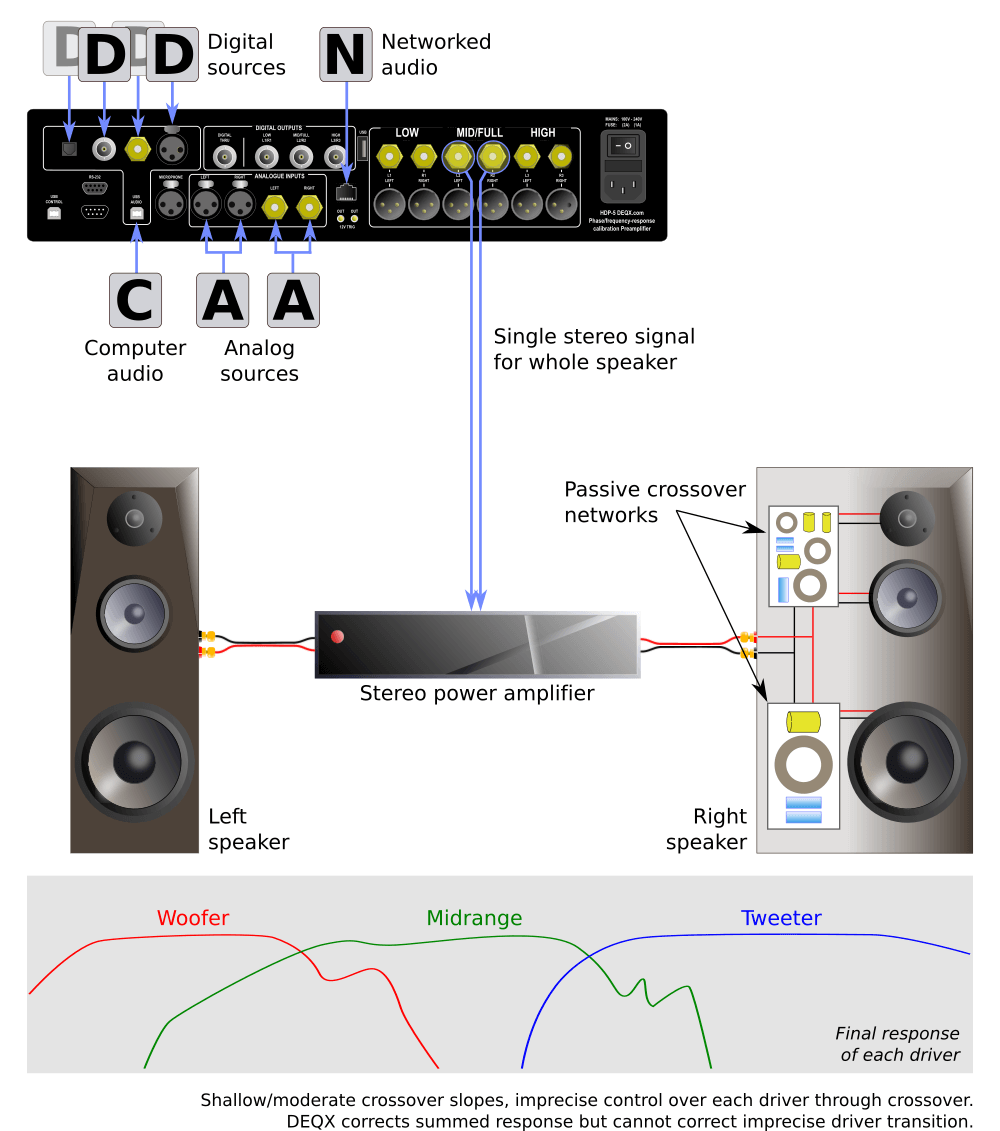Technical Overview
Compared to every other component in the music recording, production, and reproduction chain, the mechanical nature of speakers makes them prone to much higher levels of distortion and non-linearities.
DEQX corrects the speakers first. The advanced algorithms in the DEQX-Cal™ software analyze the speaker to create detailed corrections that calibrate the speaker for both amplitude and timing.
Once the speakers are corrected, only then is the room measured and anomalies addressed. Finally, a subjective Preference EQ is used to tailor for individual recordings and listening situations.
DEQX cleanly separates speaker correction, room correction, and preference equalization. Each is a distinct technical issue, and DEQX properly addresses them individually with audibly optimum final results.
Speaker Calibration
The processing algorithms in the DEQX-Cal software carefully analyze the measured response of each speaker or driver. Room reflections are removed with a user-adjustable time window to isolate the response of the speaker alone. It then generates fine-grained speaker correction filters for upload to the DEQX hardware unit. These filters affect the mid/high frequency sound that arrives directly at your ears.
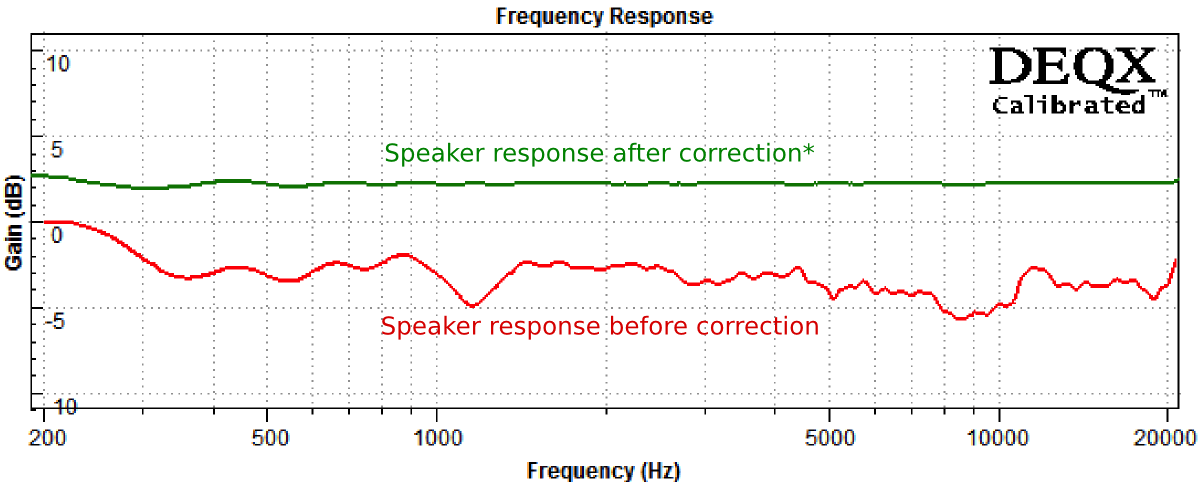
The subtle cues that our brains perceive as imaging, soundstaging, and a certain “rightness” to sound are corrupted by the phase and timing errors that every loudspeaker makes. DEQX-Cal breaks the measured response of the speaker into thousands of separate frequency groups, minutely adjusting their timing so that all groups arrive at the listener’s ear at the same time.

Subwoofer Integration
Most speakers struggle to provide the lowest octaves. With a DEQX, you can seamlessly integrate mono or stereo subwoofers. Steep filters eliminate any chance of “localizing” the subwoofer(s), and crossover frequencies can be fine-tuned in increments as small as 1 Hz.
By integrating subwoofer control right into the DEQX, one of the most important elements of correct subwoofer integration is properly addressed: timing. DEQX-Cal measures the actual time delay between subwoofer and speaker so you can precisely set time alignment.
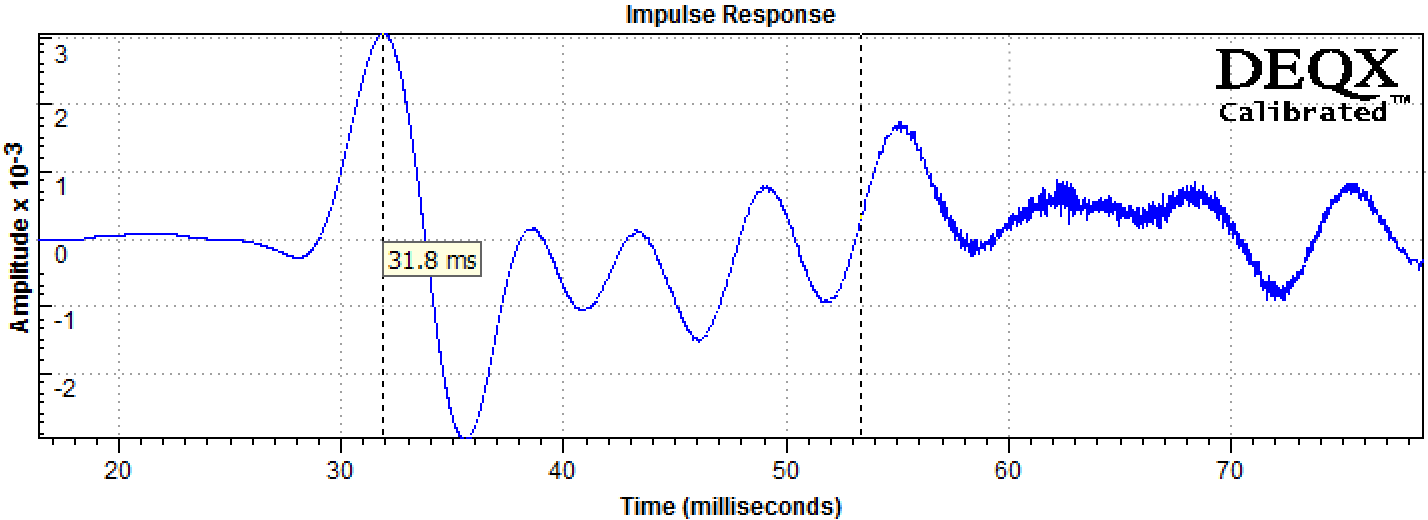
Room Correction
Low-frequency acoustic modes are present in any room, no matter how heavily treated. By employing the DEQX measurement tools and parametric Room EQ, these modes are located and minimized. This can be used with or without subwoofers. The result? Tight, fast accurate bass that sounds "being there" live.
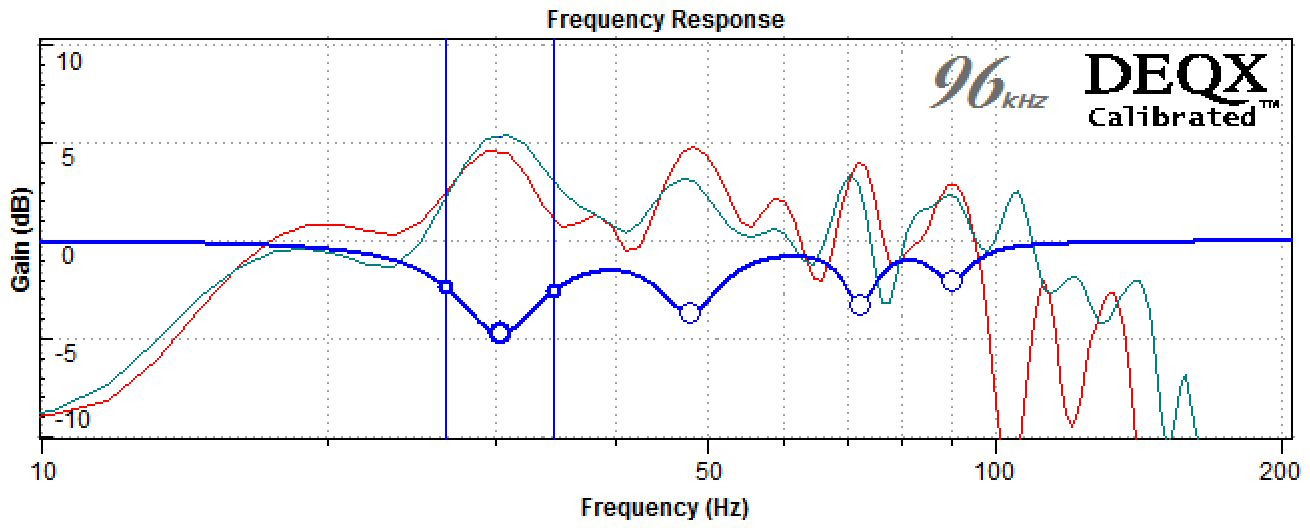
HD-Active™ Digital Crossovers
Selected DEQX models can implement a fully active speaker system. DEQX was the first to introduce DSP-based active speaker correction and crossovers using convolution FIR. We call this HD-Active™ – the promise of true high-definition audio.
HD-Active™ implements group delay and amplitude correction of each transducer, or “driver,” in the speaker. Steep linear phase crossovers confine each driver to its optimum passband, reduce driver excursion and thus distortion, and implement a transient-perfect transition between the drivers.
Furthermore, by removing the passive components – inductors, capacitors and resistors – from your speakers, their contribution to non-linearities and poor damping factor is eliminated.
Flexible Configuration
Speakers plus subs
Any DEQX model can be used to correct a pair of conventional speakers (that is, with passive crossover, or alternatively, a single-driver speaker). Subwoofers are optional, and can be added either as a mono subwoofer feed or stereo. (Mono vs stereo subwoofers →)
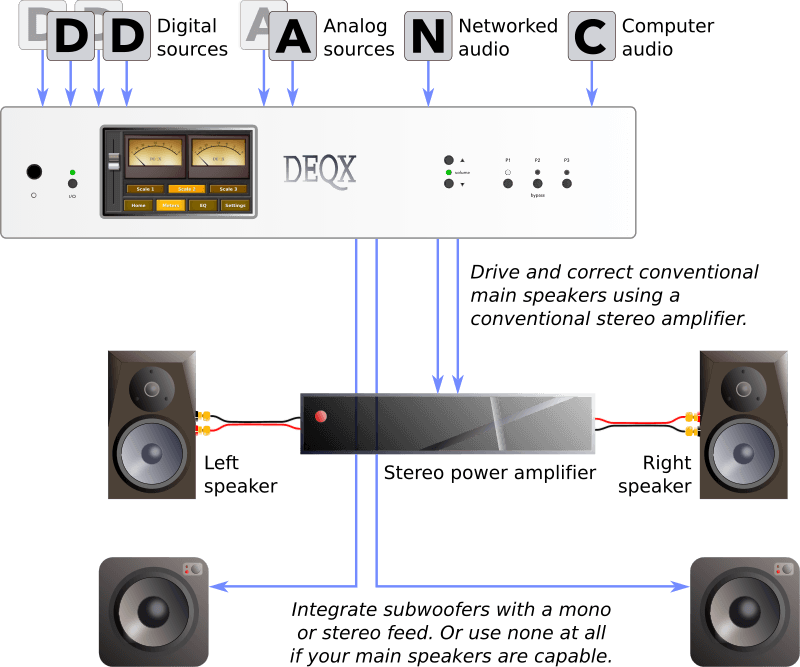
Bi-amp plus subs
By adding a second stereo amplifier and taking advantage of the linear-phase crossover capability built into the DEQX HDP processors, the DEQX is able to provide precision correction of woofer and tweeter individually. Mono or stereo subwoofers are easily added.

Tri-amp
In the complete three-way HD-Active configuration, the tweeter, midrange and woofer are individually calibrated. Steep linear-phase crossovers between both pairs of drivers ensure seamless, accurate integration. Combined with reduced driver excursion and thus distortion, the result is the most accurate and realistic-sounding full range speaker possible.
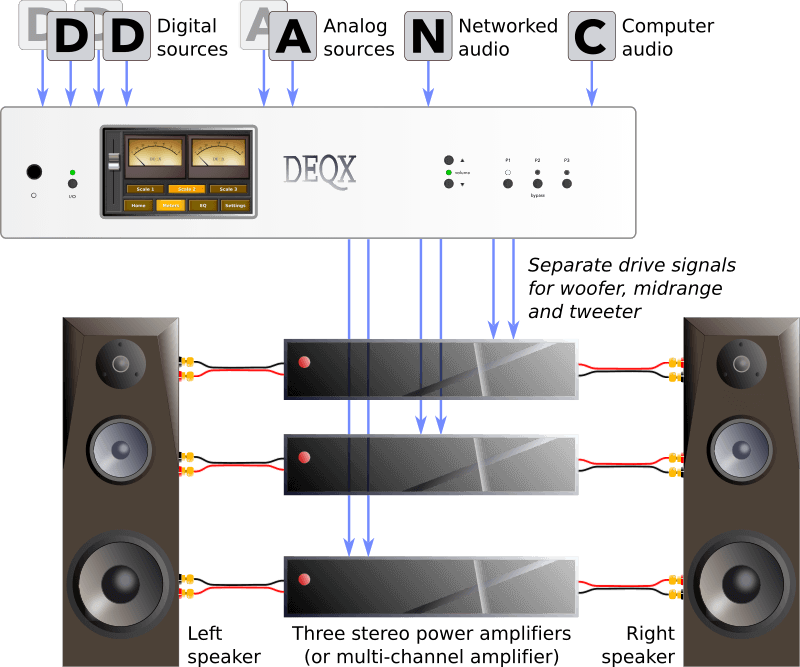
4-way & 5-way
Two DEQX units can be used to create an active speaker of up to 5-way, or 4-way with mono or stereo subwoofers. The master unit controls the slave unit for volume and preset selection, while the master's Digital Thru output ensures zero signal degradation.
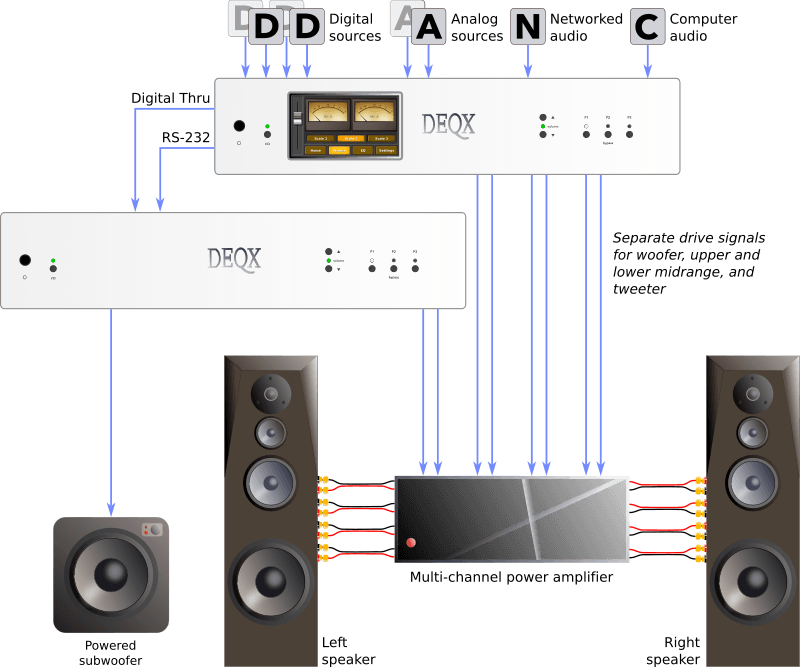
Home theater
In home theater and multichannel applications, a single master DEQX controls multiple slave units for volume and preset selection, thereby preserving the full dynamic range of the signal. All DEQX units are set to a fixed input (typically one of the analog inputs) and process the signal from a multichannel source.
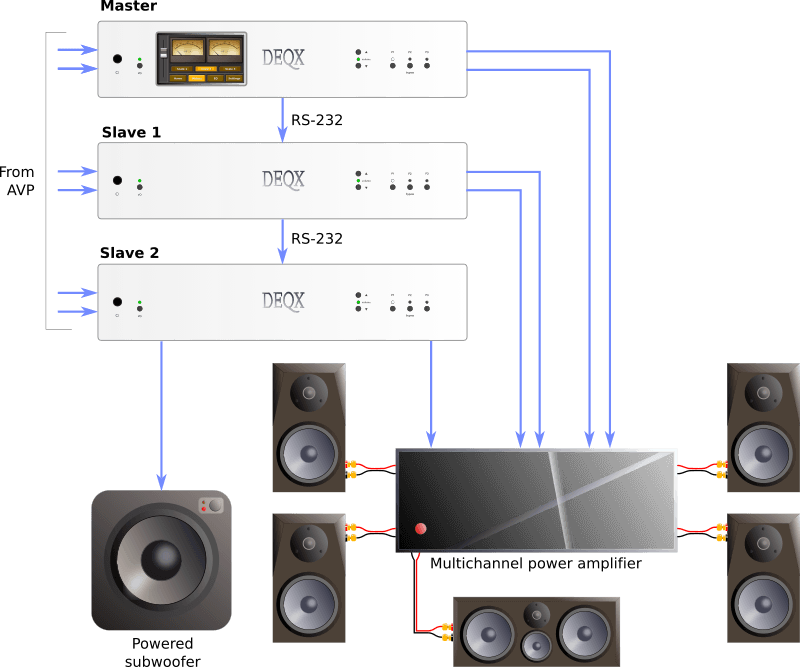
Preference EQ
The final touch in the DEQX approach to bringing truly accurate audio to your listening room: a three-band parametric equalizer with fine-grained control over frequency, bandwidth, and cut/boost.
Up to 10 presets per profile can be saved and recalled with the DEQX remote control to adjust to different listening situations and to compensate for media or recording deficiencies.
